-
Come meet Dr. Z!
Hello everyone!
I welcome you to Dental Heights, a family owned and operated general dental practice. My name is Dr. Zishan Bader DDS. We established this office in the summer of 2013 primarily to give the surrounding residents an affordable and up to date dental office for their family’s needs. I must tell you that these past few years have been a blast! We have made so many new friends through the many patients that have walked through our doors. Ive always emphazed a friendly professional environment where our patients feel like they are with those who truly care about the services provided.
A little history on myself:
I went to Lockport Township High School, attended undergrad and dental school at the University of Detroit-Mercy and graduated in May 2009. Ever since, Ive worked tirelessly on keeping myself updated on the latest technology, techniques, and other aspects of dentistry to give true justice to my patient’s experiences with me. I have been blessed to work alongside two great mentors– Dr. Alamdar (my father) & Dr. Shafeeq (my uncle) whom I have learned a great deal from.
I welcome you to come by and meet me personally & my wonderful staff. I can give you a tour of my office and insight on the types of treatments we offer here at Dental Heights!
-Dr. Zishan Bader DDS

-
6 Habits That Harm Your Teeth (And How to Break Them)
Nail Biting
The habit: This nervous habit can chip teeth and impact your jaw. “Placing your jaw for long periods of time in a protruding position can place pressure on it, which is associated with jaw dysfunction ,” says Dr. Ruchi Sahota.
The solution: Bitter-tasting nail polishes, stress reduction and setting small, realistic goals can help. If certain situations are triggers, hold something to keep your fingers busy.
Brushing Too Hard
The habit: Brushing for two minutes twice a day is one of the best habits you can get into. Just make sure you’re not trying too hard. “Brushing with a hard toothbrush, or brushing too hard, can damage teeth and irritate gums,” says Dr. Matthew Messina.
The solution: Use a soft toothbrush with the ADA Seal of Acceptance at the proper pressure. “Don’t think ‘scrub.’ Think ‘massage,’” he says. “Save the hard toothbrush for cleaning the grout in the bathroom tile.”
Grinding and Clenching
The habit: “This can cause chipping or cracking of the teeth, as well as muscle tenderness or joint pain,” Dr. Messina says. “You might also feel like you can’t open your mouth wide or chew with pain.”
The solution: “Relaxation exercises and staying aware makes a difference,” he says. A nighttime mouthguard can also help. “You’ll have less tooth damage, less pain and muscle soreness and better sleep.”
Chewing Ice Cubes
The habit: “Tooth enamel is a crystal. Ice is a crystal. When you push two crystals against each other, one will break,” Dr. Messina says. “Most of the time it’s the ice, but sometimes the tooth or a filling will break.”
The solution: Drink chilled beverages without ice, or use a straw so you’re not tempted. “The risk of chewing ice is greater than any pleasure that comes from chewing it,” he says. “Besides, ice is really cold!”
Constant Snacking
The habit: Grazing all day, especially on sugary foods and drinks, puts you at a higher risk for cavities. When you eat, cavity-causing bacteria feast leftover food, producing an acid that attacks the outer shell of your teeth.
The solution: Eat balanced meals to feel fuller, longer. If you need a snack, make sure it’s low in fat and sugar. If you indulge in the occasional sugary treat, follow it with a big glass of water to wash away leftover food.
Using Your Teeth As Tools
The habit: Your teeth were made for eating, not to stand in as a pair of scissors or hold things when your hands are full. When you do this, you put yourself at a higher risk of cracking your teeth , injuring your jaw or accidentally swallowing something you shouldn’t.
The solution: Stop and find something or someone to give you a hand. Your mouth will thank you.
This great information was from http://www.mouthhealthy.org/en/bad-habits?source=facebook&content=6_habits_to_break please refer for more information on keeping your mouth healthy!
-
Have You Maximized Your 2015 Dental Benefits?
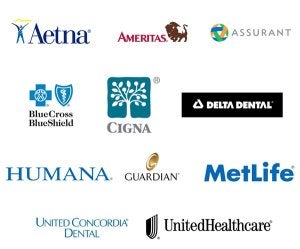
Have you maximized your 2015 Dental Benefits?
This is a friendly reminder that dental benefits do not roll over to the next year. If you have pending dental work, please make an appointment before the busy holiday season so we can help you maximize your dental insurance and improve and maintain a healthy mouth for you and your family!
Call us today at (224) 698-1472!
-
Treatment Options for Gum Disease
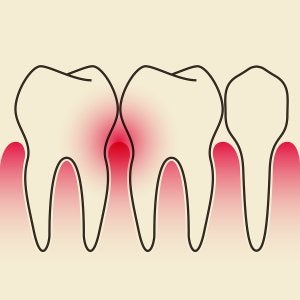 Gum disease, also known as periodontal disease , is a serious oral health issue that affects many people. If your dentist finds signs of gum disease during an exam, it is important to take all of the steps needed to return your gums to a healthy state. There are several different options for treating gum disease. Certain types of gum disease can be treated with non-surgical procedures, such as rinses or scaling. In addition, a procedure called root planing can be used to deeply clean the base of the gums. For more severe gum disease, it may be necessary to perform periodontal surgery. A dentist at an office offering family dental care near Schaumburg will be able to walk you through all of the treatment options that are available to you. By treating your gum disease with the best available procedures, you can ensure that you have a healthy smile for life.
Gum disease, also known as periodontal disease , is a serious oral health issue that affects many people. If your dentist finds signs of gum disease during an exam, it is important to take all of the steps needed to return your gums to a healthy state. There are several different options for treating gum disease. Certain types of gum disease can be treated with non-surgical procedures, such as rinses or scaling. In addition, a procedure called root planing can be used to deeply clean the base of the gums. For more severe gum disease, it may be necessary to perform periodontal surgery. A dentist at an office offering family dental care near Schaumburg will be able to walk you through all of the treatment options that are available to you. By treating your gum disease with the best available procedures, you can ensure that you have a healthy smile for life. -
A Look at Teeth Veneers
If your dentist has recommended teeth veneers for you, you may be wondering about the specifics of this type of procedure. Like a dental crown, a veneer is used to replace a decayed or damaged tooth. This porcelain-based material is implanted on the facial area of the tooth. A dentist offering affordable dentures near Schaumburg can also provide you with more information about the benefits of veneers. With a tooth veneer procedure, you can improve your smile instantly. If you would like more information about the process of implanting veneers, be sure to check out this informative video from expertvillage.
-
Common Questions About Orthodontic Care
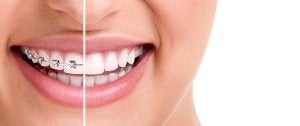 Whether you are a parent seeking braces for a child, or are an adult seeking an improved smile, orthodontics are a safe and effective way to improve crooked or overcrowded teeth. Orthodontics can also alleviate a range of other issues, such as tooth pain or jaw issues. A clinic offering family dental care in Schaumburg will be able to provide you with more information about all of your orthodontic options, including braces and dental implants. By choosing to work with a highly rated dentist in your area, you will be sure to have a great orthodontic experience. Read on for a look at answers to common questions about orthodontic care.
Whether you are a parent seeking braces for a child, or are an adult seeking an improved smile, orthodontics are a safe and effective way to improve crooked or overcrowded teeth. Orthodontics can also alleviate a range of other issues, such as tooth pain or jaw issues. A clinic offering family dental care in Schaumburg will be able to provide you with more information about all of your orthodontic options, including braces and dental implants. By choosing to work with a highly rated dentist in your area, you will be sure to have a great orthodontic experience. Read on for a look at answers to common questions about orthodontic care. Why Is Oral Hygiene Important When I Have Braces?
Patients who receive braces are instructed to perform careful oral hygiene procedures on a daily basis. Proper oral hygiene is especially important if you have traditional wire braces. If plaque is left to sit on the wires of the braces, it can cause cavities and tooth decay. By brushing your braces, you will keep your teeth healthy during your orthodontic care.
How Can I Clean My Braces?
Many patients wonder about the specifics of taking care of their teeth when they have braces . Typically, dentists recommend that patients brush their teeth after meals, in the morning, and directly before bed. You can also use special floss threaders to make sure that all food particles are removed from your teeth and braces. In the event that you find yourself without a toothbrush, you can also rinse your mouth with fresh water.
What Do Braces Feel Like?
If you are preparing for braces, you may be wondering what the braces will feel like once they have been placed in your mouth. During each visit, your dentist will gently tighten the braces wires in order to gradually move your teeth into position. If you experience discomfort after you have your braces tightened, you can alleviate the pain using an over the counter medication, such as ibuprofen.
-
A Patient’s Guide to Cavities
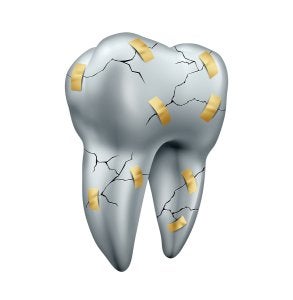 Having a healthy smile is an essential part of both your physical health and self confidence. By making regular visits to the dentist , you will ensure that your teeth are healthy and in good shape. In the event that you experience the signs of a cavity, you should be sure to visit an office offering family dental near Schaumburg. Your dentist can help alleviate your tooth pain, and can also provide additional support to prevent gum disease and other oral health issues. If you are preparing for a trip to the dentist, here is a guide to the basics that every patient should know about cavities.
Having a healthy smile is an essential part of both your physical health and self confidence. By making regular visits to the dentist , you will ensure that your teeth are healthy and in good shape. In the event that you experience the signs of a cavity, you should be sure to visit an office offering family dental near Schaumburg. Your dentist can help alleviate your tooth pain, and can also provide additional support to prevent gum disease and other oral health issues. If you are preparing for a trip to the dentist, here is a guide to the basics that every patient should know about cavities. Signs and Symptoms
There are several signs and symptoms that may indicate that you have a cavity. The symptoms of a cavity can vary depending on the severity of the issue, as well as the location of the cavity in the mouth. Some of the most common signs of a cavity include pain in one or more teeth, tooth sensitivity, or pain during eating and drinking.
Causes
Cavities form when a tooth begins to decay. The primary cause of cavity is due to a substance called plaque. When plaque forms around your teeth, the bacteria that are present in plaque will begin to eat away at the enamel of your teeth. Over time, this process can create cavities, which are holes. Plaque can build up due to poor oral hygiene practices, or can be a natural occurrence due to the structure of your teeth.
Treatment
There are several techniques that dentists can use to treat cavities. If a cavity is very minor, it may be able to remove the damage using a fluoride rinse. More severe cavities may require that your dentist perform a filling procedure. During the filling, your dentist will remove the damaged area of your tooth and fill the area with a new material. Very serious cavities can also be treated with other procedures, such as crowns or root canals.
-
What Are the Symptoms of a Dental Abscess?
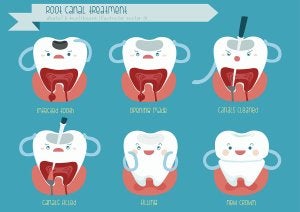 If you are experiencing severe tooth pain, swollen gums, and a fever, you may have an abscessed tooth. A dental abscess is a severe infection that can result from poor oral care, trauma, or gum disease. If you think you have an abscessed tooth, it is important to see a dentist, as you might need to undergo a root canal in Schaumburg .
If you are experiencing severe tooth pain, swollen gums, and a fever, you may have an abscessed tooth. A dental abscess is a severe infection that can result from poor oral care, trauma, or gum disease. If you think you have an abscessed tooth, it is important to see a dentist, as you might need to undergo a root canal in Schaumburg . A dental abscess is an infection inside the tooth that has spread to the root. This can develop when tooth decay becomes so severe that it reaches the inner pulp. A throbbing and continuous toothache is the most common sign of an abscess. The pain may subside if the pulp dies from the infection, but this does not mean that the infection has healed or that the tooth does not need treatment from a dentist. More serious symptoms of an abscess include fever, foul breath, and a bad taste. You may also experience swelling of the jaw. In some cases, you may see an open sore on the side of the gum near the infected tooth.
-
Answering FAQs about Fastbraces™
 For most dental patients, having straight teeth requires getting braces. What if you could have the results of braces in less time with less pain? If you are looking into braces in Schaumburg, talk to your orthodontist about Fastbraces ™. Read on for answers to the most common questions about Fastbraces™.
For most dental patients, having straight teeth requires getting braces. What if you could have the results of braces in less time with less pain? If you are looking into braces in Schaumburg, talk to your orthodontist about Fastbraces ™. Read on for answers to the most common questions about Fastbraces™. Why Are Fastbraces™ a Good Alternative to Conventional Braces?
Traditional braces typically move teeth in a two-step process that can cause unnecessary discomfort and additional wear time. Fastbraces™ combines these two steps into a process that results in much less pain and quicker completion times. Fastbraces™ are also available to a wider variety of patients than traditional braces.
How Do Fastbraces™ Work?
Fastbraces™ work by replacing traditional square brackets with triangular ones. This allows for more space between braces and, thus, more leverage to redirect the root of each tooth. When the root of a tooth is properly aligned, the rest of the tooth will follow. Ultimately, this added space allows for the quicker realignment of teeth and a decreased wear-time for the patient. This means that patients can enjoy a beautiful smile and decreased risk of periodontal disease as soon as possible.
Are There Additional or Different Risks Involved?
There are no extra risks involved with the use of Fastbraces™. Wearing braces can be quite trying, and sometimes uncomfortable for patients. However, Fastbraces™ offer patients an easier and more enjoyable experience than traditional braces.
What Are My Fastbraces™ Options?
Fastbraces™ come in three different options, and most care providers offer all three types of Fastbraces™ systems. Fastbraces™ Metal has a more traditional appearance while still offering the quality of Fastbraces™ technology. Fastbraces™ Clear provides a more attractive bracket system with tooth-colored wires. Fastbraces™ Retainers are available for patients that need minimal dental work and also work as follow-up treatments for both of the other systems. Thanks to the significant advancements of Fastbraces™ technology, patients may only be required to wear Fastbraces™ Retainers for 15 to 20 minutes a day, per their dentist’s instructions.
-
Great Dental Heights Reviews
Welcome to Dental Heights, your Schaumburg and Glendale Heights dentist. From the time you first call our office, you will experience exceptional service, responsiveness, and care. Look at our many great reviews from our satisfied patients on our Google Plus page!
RECENT POSTS
categories
Archives
2025
2017
2016
2015
- October (1)
- September (2)
- August (4)
- July (4)
- June (5)
- May (4)
- April (4)
- March (5)
- February (5)
- January (5)
